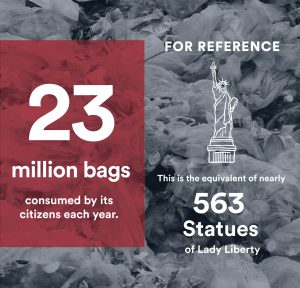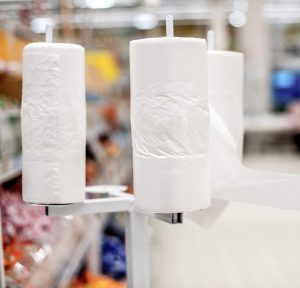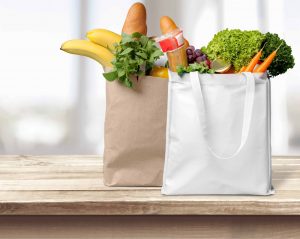Commencez à diffuser la nouvelle - New York abandonne définitivement les sacs en plastique
Mise à jour : 19 octobre 2020 New York appliquera l'interdiction des sacs en plastique après des mois de retard.
Le 1er mars 2020, New York mettra en place son interdiction complète des sacs en plastique qui tentera de réduire les 23 millions de sacs consommés par ses citoyens chaque année. Pour replacer ce chiffre dans une perspective très new-yorkaise, cela équivaut à près de 563 monuments de la Statue de la Liberté.
Après la Californie en 2016, le département de la conservation de l'environnement de l'État de New York (DEC) a pris des mesures contre les sacs en plastique à usage unique, interdisant leur distribution par les détaillants dans l'ensemble de l'État. La réduction de la dépendance à l'égard des sacs en plastique jetables est considérée comme un grand pas vers un État plus durable.
Pour les entreprises de l'État de New York, l'adaptation aux nouvelles règles nécessitera sans doute un certain temps d'apprentissage. Après tout, la commodité et la rentabilité des sacs en plastique sont parmi les raisons pour lesquelles nous nous sommes habitués à un matériau dont on sait maintenant qu'il met plus de 500 ans à se décomposer.
Voyons ce que l'interdiction des sacs en plastique à New York signifie pour vous et votre entreprise, en vous donnant les outils dont vous avez besoin pour passer en douceur à un avenir sans sacs en plastique.
Exceptions à l'interdiction des sacs en plastique à New York - ce qui n'est pas inclus dans l'interdiction
La liste des exemptions à l'interdiction des sacs en plastique à New York est la suivante :
- Sacs en plastique utilisés pour emballer exclusivement de la viande, du poisson, des fruits de mer, de la volaille ou d'autres aliments, fleurs ou plantes non emballés.
- Sacs en plastique utilisés pour emballer des articles tels que des fruits, des légumes, des céréales, des petits objets durs (écrous, boulons, vis), des poissons vivants ou des insectes, provenant de conteneurs en vrac.
- Sacs en plastique utilisés pour emballer les aliments tranchés ou préparés à la demande
- Sacs en plastique vendus en vrac s'ils sont préemballés
- Sacs en plastique vendus comme sacs poubelles
- Sacs en plastique vendus pour le stockage des aliments, tels que les Ziplocks
- Sacs en plastique utilisés comme sacs à vêtements, tels que ceux utilisés par les nettoyeurs à sec
- Sacs en plastique utilisés comme sacs de transport ou de livraison pour les plats à emporter
- Sacs en plastique utilisés pour les médicaments sur ordonnance
- Un sac en plastique filmé pour lequel il n'existe pas d'alternative (défini par le DEC)
Exceptions à l'interdiction des sacs en plastique à New York - trouver des sacs alternatifs
Les sacs réutilisables font l'objet d'une définition stricte établie par le DEC :
- Sacs spécialement conçus pour des usages multiples
- Sacs d'une durée de vie minimale de 125 utilisations, capables de porter 22 livres sur une distance d'au moins 175 pieds.
- Sacs d'une contenance d'au moins 22 livres pour toute la durée de vie.
- Sacs avec au moins une sangle ou une poignée
- Sacs lavables à la main ou en machine
En outre, les sacs réutilisables, tels que définis dans les exceptions à l'interdiction des sacs en plastique à New York, doivent présenter les caractéristiques suivantes :
- Les sacs doivent avoir une épaisseur minimale de 10 mm lorsqu'ils sont fabriqués en PEBD, PEHD ou autre plastique.
- Les sacs doivent avoir un grammage minimal de 80 g/m² lorsqu'ils sont fabriqués à partir de plastique non filmé d'origine naturelle, synthétique, pétrolière ou non pétrolière.
Que peut faire mon entreprise pour se préparer à l'interdiction des sacs à New York ?
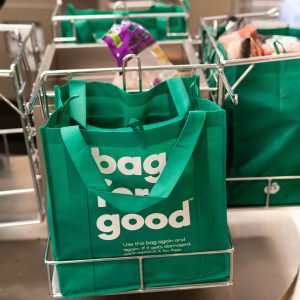 Préparer son entreprise pour ces nouvelles réglementations est extrêmement important - à la fois pour rester conforme et pour s'assurer que vos clients ne sont pas affectés. Heureusement, la plupart des consommateurs sont extrêmement positifs quant à l'interdiction des sacs en plastique à NY, et la montée du mouvement #BYOBagNY aidera les entreprises à s'adapter avec moins de difficultés que si ces nouvelles réglementations étaient impopulaires auprès du grand public.
Préparer son entreprise pour ces nouvelles réglementations est extrêmement important - à la fois pour rester conforme et pour s'assurer que vos clients ne sont pas affectés. Heureusement, la plupart des consommateurs sont extrêmement positifs quant à l'interdiction des sacs en plastique à NY, et la montée du mouvement #BYOBagNY aidera les entreprises à s'adapter avec moins de difficultés que si ces nouvelles réglementations étaient impopulaires auprès du grand public.
Afin d'encourager les consommateurs à apporter leurs propres sacs, les entreprises peuvent envisager d'offrir de petites réductions. Toutefois, les entreprises ne peuvent pas compter uniquement sur le consommateur et l'approvisionnement en sacs alternatifs doit être une priorité. Fournir gratuitement des sacs fourre-tout de marque fabriqués à partir de matériaux durables est une solution qui peut contribuer à faire connaître la marque et vous aider à rester en conformité. Il est également possible de vendre des sacs pour une somme modique en utilisant l'interdiction comme incitation à pousser les consommateurs à utiliser des sacs à usage multiple.
Que signifie l'interdiction des sacs en plastique à New York pour le recyclage ?
L'interdiction des sacs en plastique à New York n'affectera pas les exigences existantes en matière de recyclage, et les magasins de détail doivent continuer à collecter et à recycler les sacs en film de manière appropriée. L'interdiction réduira la pression sur les installations de recyclage en éliminant la majeure partie des déchets plastiques, mais tous les sacs plastiques restants devront être recyclés de manière responsable après la date butoir du 1er mars.
La RTS offre une variété d'options pour aider votre entreprise à s'adapter, et propose un service de ramassage des sacs en plastique qui vous permettra de planifier la collecte des sacs restants en fonction de vos besoins. En outre, la RTS s'associe à aNYbag pour s'assurer que les sacs en plastique sont recyclés en sacs réutilisables conformes aux directives du DEC.
Vous souhaitez plus d'informations sur la façon de vous préparer à l'interdiction des sacs en plastique à New York ?
Pour plus d'informations, contactez la RTS dès aujourd'hui pour faire ramasser vos sacs plastiques.
